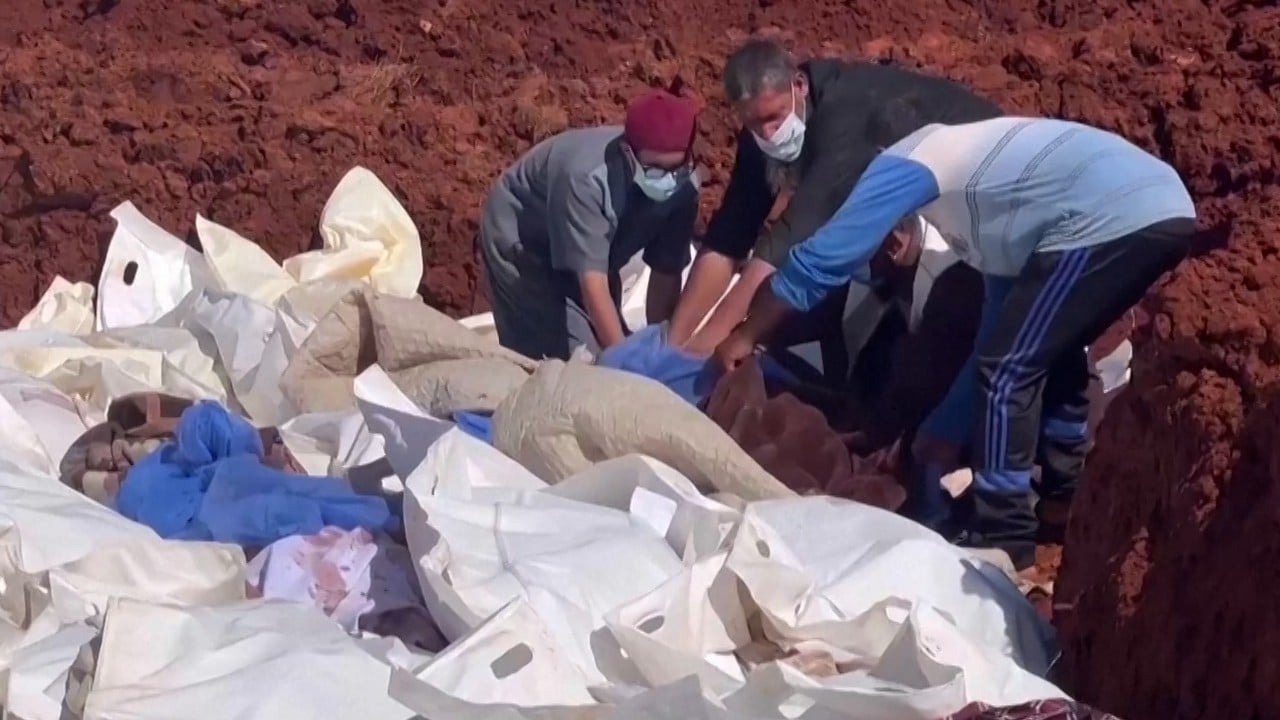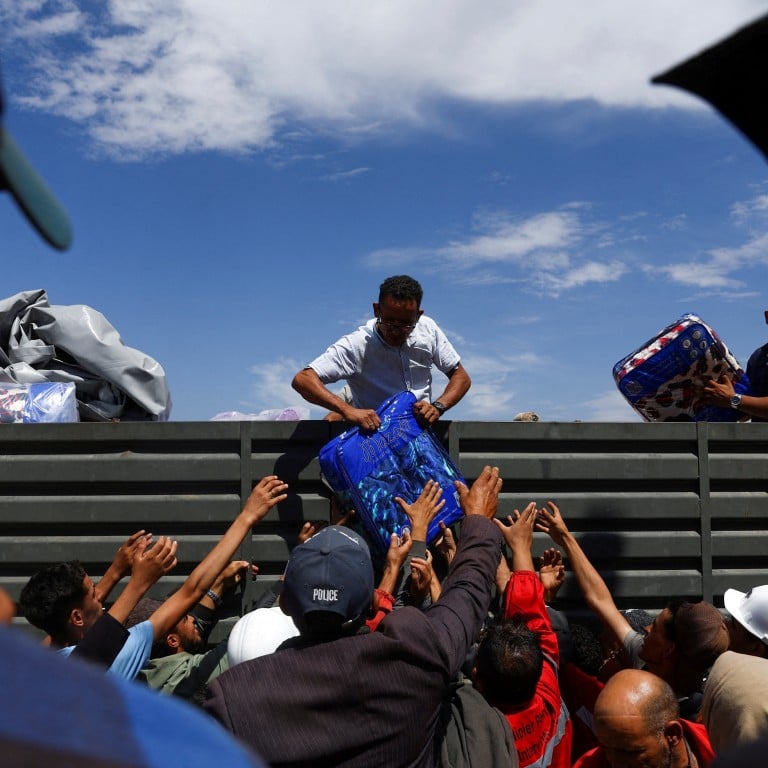
What’s delaying aid after Morocco and Libya natural disasters? Politics
- Catastrophic floods ravaged eastern Libya this week after a magnitude 6.8 earthquake hit Morocco last Friday
- The responses to both disasters show the difficulty of separating humanitarian aid from political considerations
Devastated communities have waited days for help, often digging out and burying their dead with little to no assistance from their governments. Some of the delay can be blamed on destroyed infrastructure. But the bigger roadblock is politics.
Though other governments and aid groups swiftly offered assistance – including rescue and relief teams – help has been snarled by rivalries.
Outside Morocco, there’s bewilderment: despite dozens of international teams ready to mobilise after Friday’s magnitude 6.8 earthquake, the government in Rabat, the capital, has officially accepted assistance from only four nations it deems “friendly” – Qatar, the United Arab Emirates, Spain and Britain – and that acceptance came two days after Friday’s earthquake.
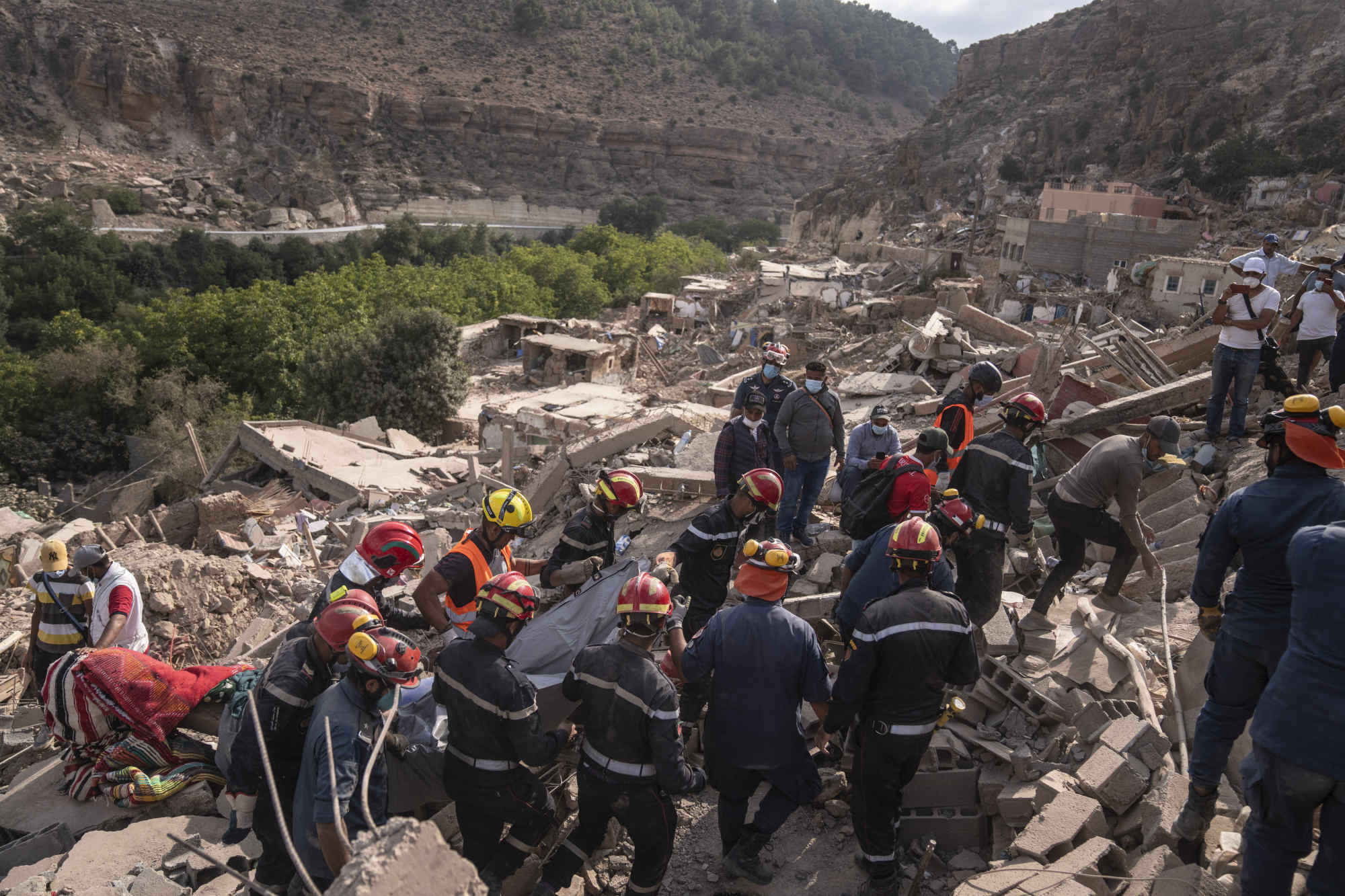
In Morocco, where the 72-hour “golden period” for saving lives has already passed, thousands are complaining that authorities have all but abandoned them, furious at what they say is the government’s lackadaisical response.
The Interior Ministry on Sunday sought to justify its reticence in welcoming aid, saying a “lack of coordination would lead to counterproductive results”.
But observers point out that geopolitics appears to be its real concern.
Algeria, which two years ago severed ties with Morocco over sovereignty issues in the Western Sahara, opened its airspace to facilitate aid flights’ access and scrambled 80 rescuers to help. After two days of silence, Morocco said on Tuesday that it did not need its neighbour’s assistance, according to the Algerian Foreign Ministry.
That attitude reflects the views of King Mohammed VI, who “made it clear that Western Sahara was the lens through which Morocco would view all foreign engagement,” said Geoff Porter, president of North Africa Risk Consulting and an expert on the Maghreb region.
“Thus, aid offers are still viewed as tools of foreign policy,” Porter said. “This means that aid and relief cannot be accepted from countries that do not unequivocally recognise Moroccan sovereignty over Western Sahara.”
That might explain why Germany had to stand down a 50-person team from its Technical Relief Agency that had assembled at Cologne airport to fly to Morocco.
“It is incomprehensible that Rabat has so far forgone German help,” said Carl-Julius Cronenberg, who chairs the German Parliament’s group on the Maghreb, in a statement to German newspaper Tageespiegel.
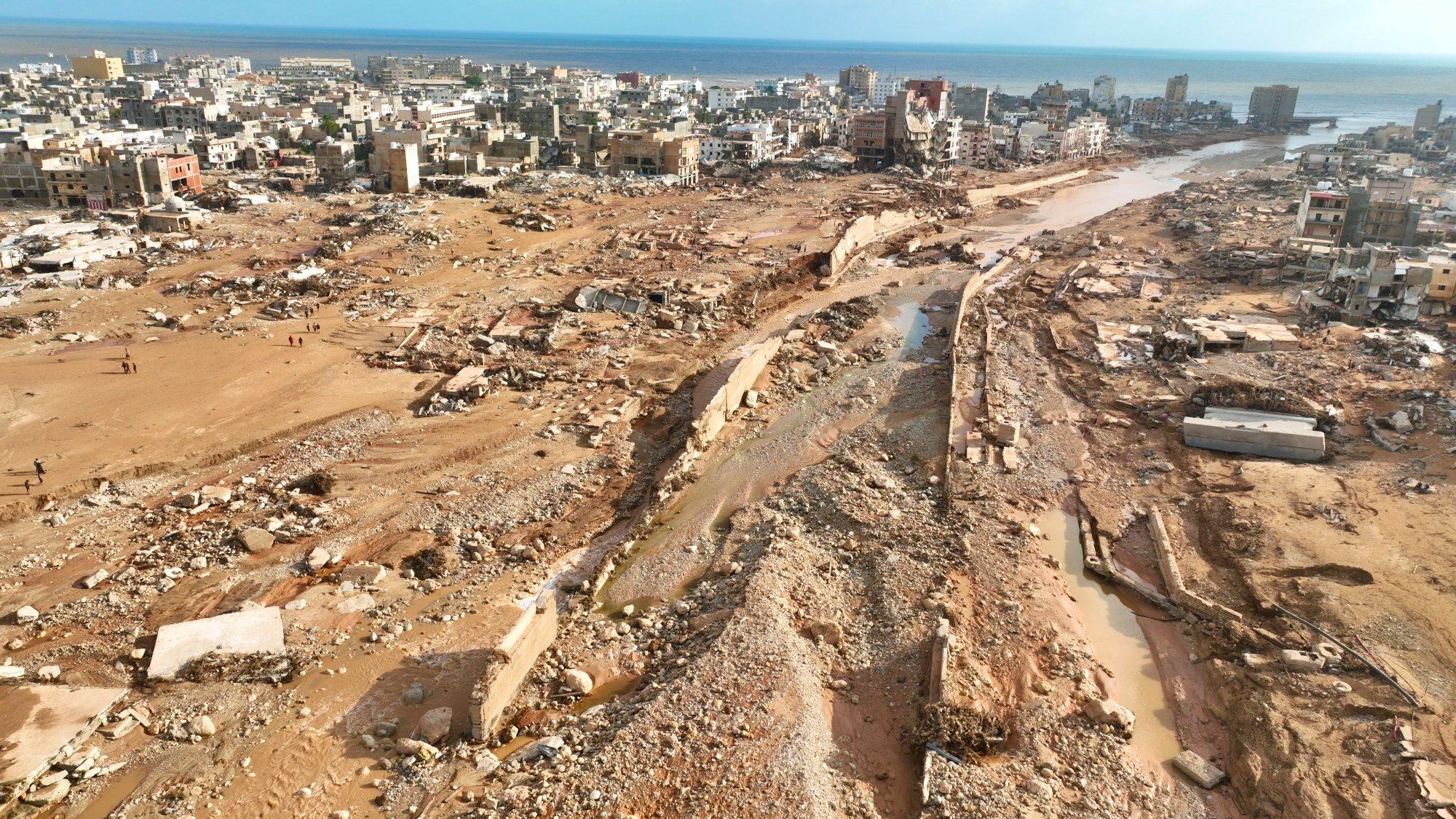
“The current situation should not be about misunderstood national pride.”
France, which colonised Morocco until 1956 – and has seen relations chill after disagreements over visa and immigration issues as well as France’s outreach to Algeria – was also rebuffed, with a team from the French aid group Rescuers Without Borders unable to enter the country.
“Unfortunately, we still don’t have the go-ahead from the Moroccan government,” Arnaud Fraisse, the group’s founder, said Sunday in a statement to broadcaster France Inter.
French Foreign Minister Catherine Colonna played down any rancour between the two countries, saying in an interview with BFM television on Monday that it was little more than a “misplaced controversy”.
In Morocco, the response, troubled as it is, is at least being overseen by a stable government.
Libya has seen more than a decade of internecine conflict that has left the country with two rival governments, one in the capital, Tripoli, and another controlling the country’s east, based out of the city of Benghazi.
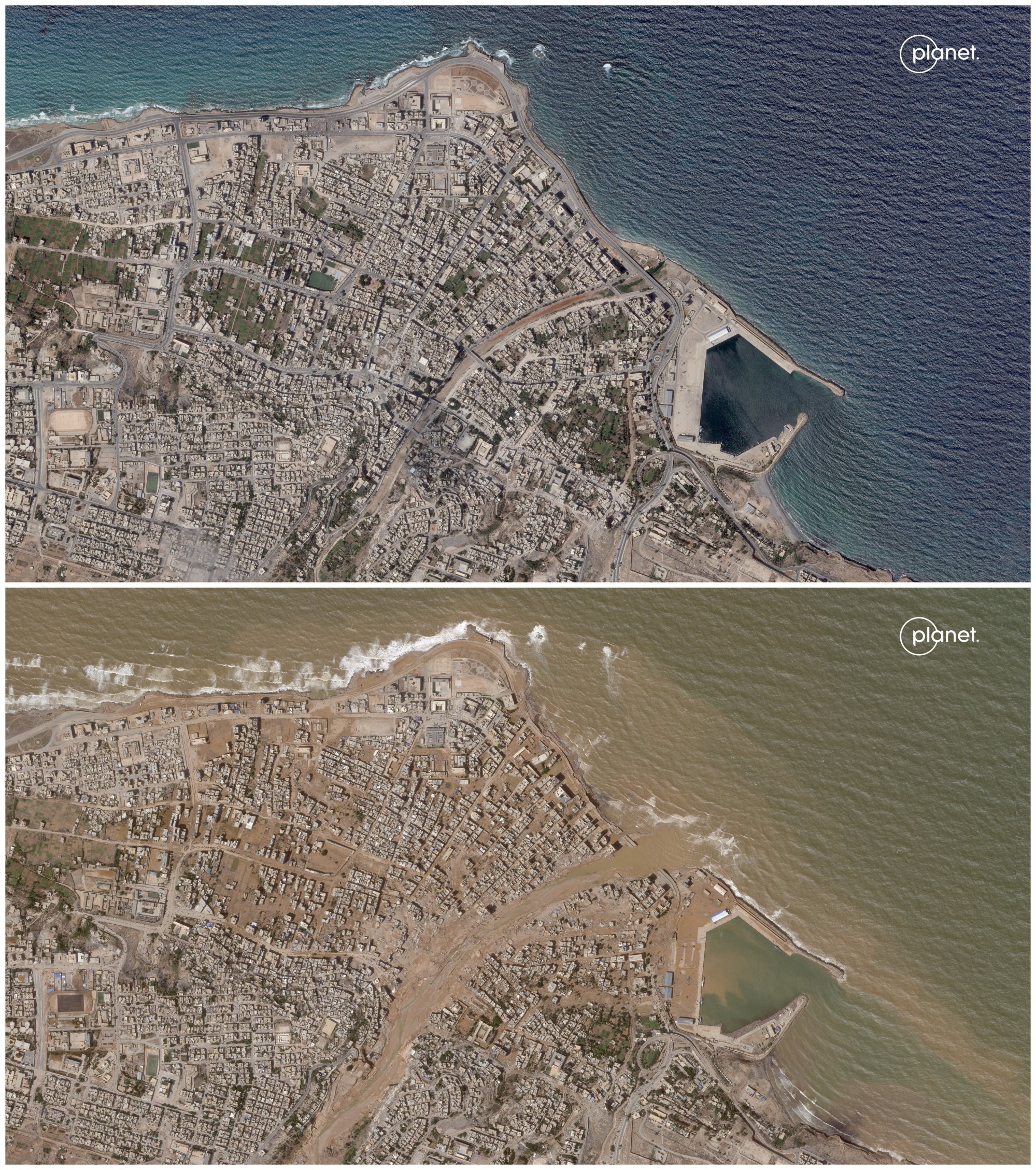
It is in the east where the coastal city of Derna was mostly destroyed after relentless rain burst nearby dams, unleashing floods that washed away homes, cars, people and whole neighbourhoods. Authorities say that at least a quarter of the city no longer exists.
Officials from the eastern-based administration rushed to declare a response. Khalifa Hifter, the military strongman who supports the eastern-based administration, urged Libya’s central bank to provide support.
“We have directed the government to form a specialised committee to assess the damage, instantly begin the reconstruction of roads to facilitate transportation, restore the electricity and take all immediate and needed measures,” Hifter said in a televised statement.
Meanwhile, Abdul Hamid Dbeibah, the prime minister of the Tripoli government, also weighed in, saying that the country was assessing aid offers from the international community.
“There were multiple offers of help and we will only accept aid that is necessary,” he said.
Hisham Abu Shkeiwat, a minister with the eastern government, said the massive numbers of corpses strewn across the streets and on the coast make the city all but uninhabitable.
Local activists have been compiling lists of the dead, posting hastily scribbled notices on Facebook and other platforms. And in a sign of solidarity, the Tripoli government has dispatched aid convoys and planes carrying first responders and body bags.
But eastern administration officials denied there had been any direct contact with the Tripoli government. “If there has been any contact, I haven’t heard of it,” Ahmed Mismari, spokesperson for the self-styled Libyan National Army, the force that controls the eastern region, said in a TV interview, adding that now wasn’t the time for political jockeying.
Meanwhile, some international aid has begun to arrive, including 168 rescuers, two search-and-rescue vehicles, and two rescue boats that arrived from Turkey, which will also send tents, blankets, food and other supplies. Italy is also sending civil defence teams.
Egypt scrambled a military delegation along with medical supplies. The Emirates, Qatar, Iran and Algeria said they have sent aid. The US State Department, meanwhile, said that it was coordinating with “UN partners and Libyan authorities on how we can assist the ongoing relief efforts”.
In his interview, Mismari said the eastern government was dealing directly with Egypt, the Emirates and Turkey. Turkey has long supported the Tripoli government, providing it with military assistance that saved it from Hifter’s assault in 2019. But since the fighting ended, Ankara has made inroads with the east.
In such a divided nation, coordination problems will inevitably arise, said Tim Eaton, Libya researcher at the Chatham House think tank in London.
“There are 140 state institutions divided between the east and west governments, so the logistics of a response are awful,” he said.
What that means, said Anas Gomati, director of the Sadeq Institute, a Tripoli think tank, is that “we don’t know what’s required”.


